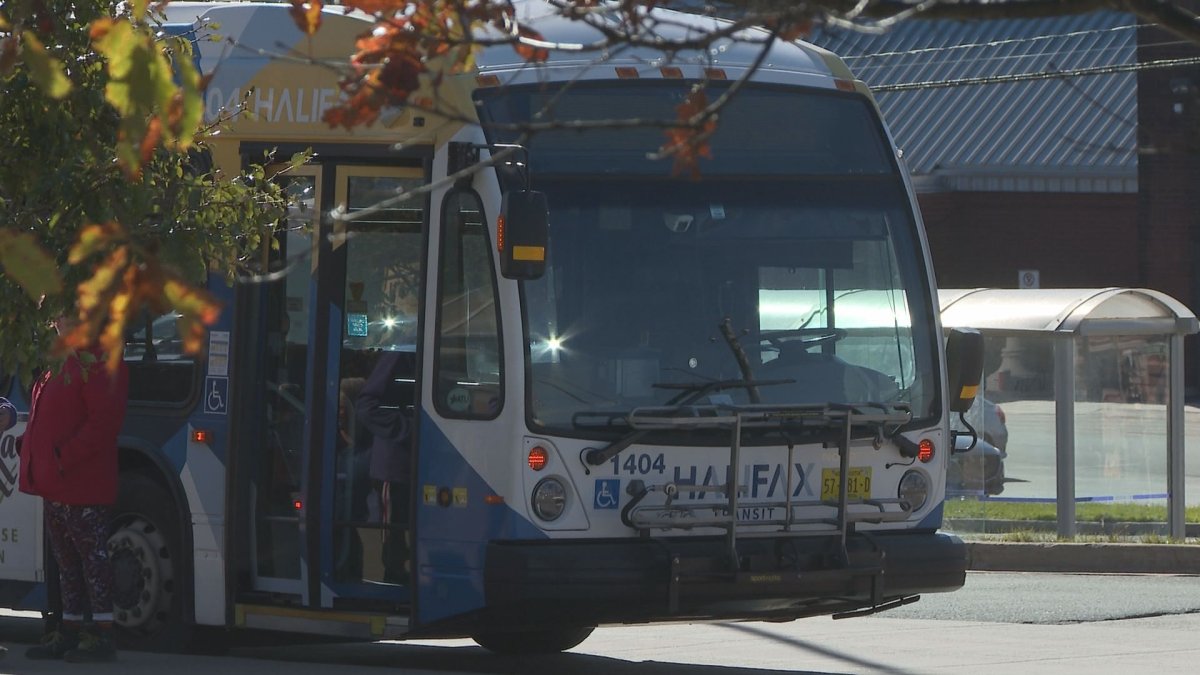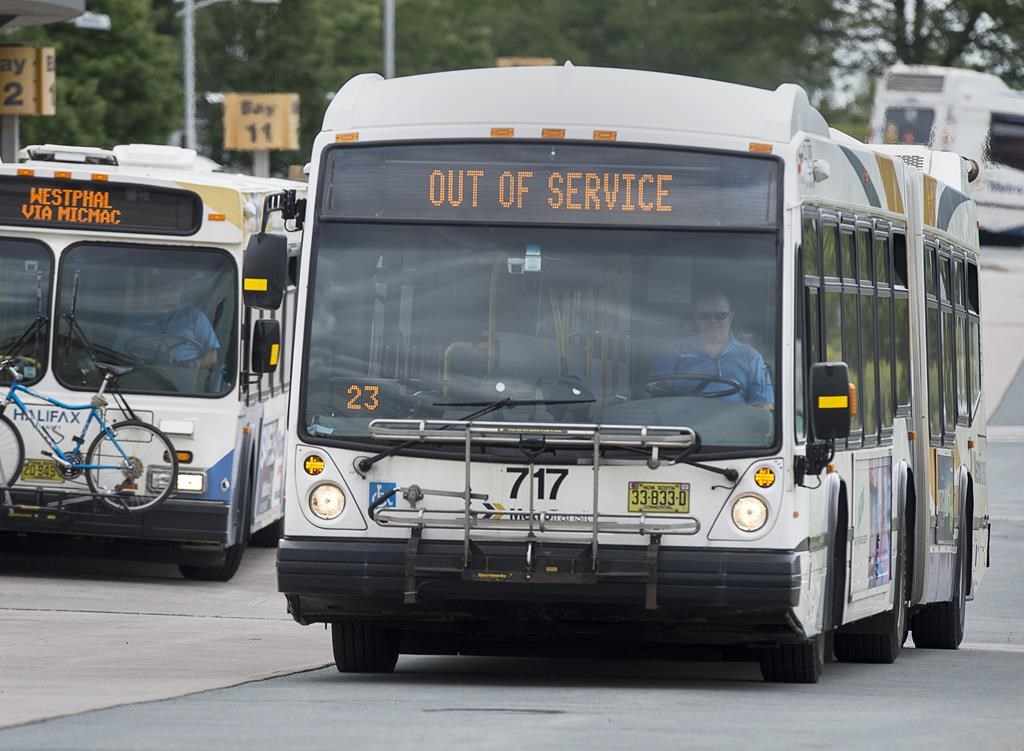Until recently, Halifax was without a safety bylaw for its public transit system – and as reports of disturbances continued to rise, so did security concerns.

But on Tuesday, Halifax regional council unanimously approved a new Halifax Transit bylaw. The guidelines look to improve incident responses by introducing disciplinary measures like handing out fines or suspensions to disruptive passengers and imposing time restrictions on people using transit facilities as shelters.
Violation of the new bylaw could see passengers fined anywhere from $100 to $10,000 or banned from transit facilities for up to six months.
Although the city taking a step toward strengthening protections for both passengers and transit operators can be seen as progress, some within the workforce still have some concerns.
“We’re still going to be calling in and waiting for a police officer to show up for any enforcement,” said Shane O’Leary, the president of Amalgamated Transit Union (ATU) Local 508, which represents transit employees.
He said the new bylaw still makes bus drivers dependent on an “already understaffed” police force to remove problematic passengers, adding that he’d like to see Halifax Transit supervisors be able to issue tickets themselves.
“If it’s a criminal act, yes, call the police, but if you’re just being rowdy, causing trouble and being disruptive, you should be allowed to be charged,” he said. “We have these guys out there in security belts and puncture-proof vests, why can’t they write summary offence tickets?
“By waiting until it’s an actual crime, somebody’s going to get hurt,” he added. “And every day we wait, an operator’s life is at risk.”
He said Halifax Transit needs its own “transit police” for the bylaw to be fully effective.
Coun. Waye Mason, who chairs the city’s transportation standing committee, said there’s been an increase in “casual violence and lack of order” in transit systems throughout Canada — and Halifax is no exception.
“Our bus operators are being attacked,” he said. “We don’t want to see anybody being attacked like that…. It’s not right.
“It’s pretty hard to recruit people to drive a bus if they’re afraid they’re going to get beat up.”
According to the bylaw, responsibility will fall upon the police to address the severity of a disturbance – and in response, issue offence tickets or distribute transit bans to passengers who cause any range of disruptions, including assaults, vandalism and interfering with passengers boarding, riding or leaving transit.
Additional safety protections are being put in place to protect transit operators, including penalties for those who obstruct the operation of a vehicle or delay its departure.
Mason said pressure to establish safety regulations for the transit system came when lawyers informed the Halifax Regional Municipality that it was incorrectly using the province’s Protection of Property Act to ban people from the city’s buses.
“It can only apply to property. It can’t apply to buses…. It was determined that wasn’t legal,” he said. “So we had to get this bylaw written very quickly to cover that gap.”
Safety security officers
During Tuesday’s council meeting, Phillip Herritt, director of transit operations for Halifax Transit, said he will return to council in November with a report on building a “safety officer program,” which might fit the bill for O’Leary’s suggestion.
“Through next year’s budget process, (we will make a) request for the required resources, people, equipment … to actually create and staff that program,” Herritt said in response to a question about training new officials, aside from police, to enforce the rules.
Herritt said Halifax Transit will be studying other transit systems throughout the country to better understand what’s required to build an effective safety officer program.
The bylaw currently states that “enforcement for the Halifax Transit by-law will reside with Halifax Regional Police and the RCMP.”
In a followup email on Thursday, O’Leary said that was the first he had heard any discussion of incorporating safety security officers.
Mason said until the report in November, bylaw enforcement will rely heavily on police.
“But the idea is to also have these other officers who aren’t at the expense of the police … who’d be able to enforce these rules,” he said. “It’d be police or any bylaw person who’s sworn in as a special constable. The problem is I don’t think we have anybody trained and sworn to do that for transit.”
Those who receive bans have up to three days to appeal their case to a bylaw administrator. If their ban remains, a non-compliant rider could be fined for returning to Halifax Transit property prior to their suspension end date.
The new rules apply to all Halifax Transit property, excluding ferry services, including buses, terminals, bus stops and passenger shelters.
The report provided a long list of restricted conduct on transit property that included violations such as carrying dangerous weapons, engaging in any activity that would endanger another passenger and performing a live musical act without the permission of the city.
‘Assaults are happening on a regular basis’
O’Leary said a lot of disturbances occur at Halifax’s Mumford and Lacewood terminals, as well as the bridge terminal in Dartmouth.
“At the Lacewood terminal, they literally have to lock the terminal down at three o’clock in the daytime,” he said, adding that the terminal recently had to cut off its Wi-Fi to reduce the number of people congregating around the area to use the internet service.
As for the current state of workers, O’Leary said Halifax Transit employees have the highest rates of sick time, long-term disability and turnover in the city. He said drivers are quitting within weeks of being hired “after they find out what it’s really like.”
“You shouldn’t have to get on the bus and keep your head down and keep your mouth shut and hope not to get assaulted. Our operators have to do that,” O’Leary said.
O’Leary said his union has put “a lot of pressure” on Halifax’s council in the wake of the uptick in offences, adding that these problems weren’t receiving much attention until recent improvements were made to the tracking of incident reports.
“None of those were tracked properly for the longest time,” he said. “Now they’re allegedly tracking them so that they can give us a number of assaults and find out where they’re happening.… You can’t just ignore it.
“We’re out there worried about our safety.… We’re not a small town, we’re a big city where assaults are happening on a regular basis.”
The report said no community engagement was held in drafting the bylaw due to the “rapid increase of security incidents on Halifax Transit and the time-sensitive nature of the report” but said an upcoming safety program plans to gather outside input on the changes.






Comments